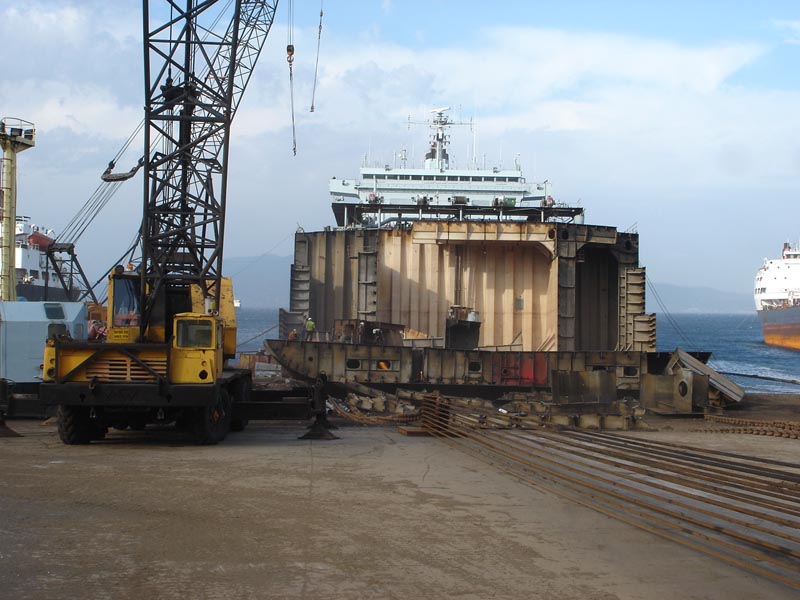The global maritime industry is set to witness an extraordinary surge in ship recycling activities over the course of the next decade, with more than 15,000 vessels expected to be decommissioned and dismantled between 2023 and 2032, according to shipping industry group BIMCO.
This projection more than doubles the recycling figures of the previous ten years and highlights a significant shift in the industry’s focus towards sustainable practices and environmental responsibility.
As the wave of ship recycling gains momentum, BIMCO emphasizes the pressing need for the ratification and enforcement of the Hong Kong International Convention for the Safe and Environmentally Sound Recycling of Ships. Initially adopted in 2009, the convention aims to mitigate risks to human health, safety, and the environment associated with ship dismantling operations.
Analyzing the past decade, 7,780 ships with a combined deadweight capacity of 285 million tonnes were sent for recycling, according to BIMCO. Notably, a majority of the deadweight capacity recycled, approximately 60%, originated from vessels constructed during the 1990s.
Looking ahead to the next decade, ships built during the 2000s will serve as the primary driver of recycling. In addition, considering the 65% rise in deadweight capacity during the 2010s, recycling levels could continue to climb in the next ten to twenty years, according to BIMCO.
Historically, around 50% of bulk carriers, tankers, and container ships have been recycled by the time they reach 25 years of age, with an estimated 90% being dismantled between 30 to 35 years of age. BIMCO says that by applying this recycling pattern to the current fleet of trading ships, industry experts estimate that approximately 15,000 vessels, totaling 600 million deadweight tonnes, will undergo recycling between 2023 and 2032.
Greenhouse Gas Emissions
BIMCO highlights that an encouraging aspect of increased ship recycling is the positive impact it has on greenhouse gas emissions due to the use of electric arc furnaces, a prevalent method in ship recycling, for recycling steel. The method results in significantly lower emissions compared to the production of crude steel.
BIMCO notes that India and Turkey, two prominent ship recycling nations, both utilize electric arc furnaces extensively for steel production. In the past five years alone, the two countries accounted for recycling 25% and 34% of the world’s ship deadweight capacity and number of ships, respectively. Bangladesh, the largest ship recycling country globally, and Pakistan, also contribute significantly to the industry, collectively recycling 96% of deadweight capacity and 77% of ships during the same period, according to BIMCO.
Other factors such as tightening regulations on greenhouse gas emissions are expected to expedite the retirement and recycling of older ships, leading to an accelerated rate of decommissioning, according to BIMCO.
In total BIMCO projects more than 15,000 vessels and 600 million deadweight tonnes will be recycled in the next decade.

 Join The Club
Join The Club











